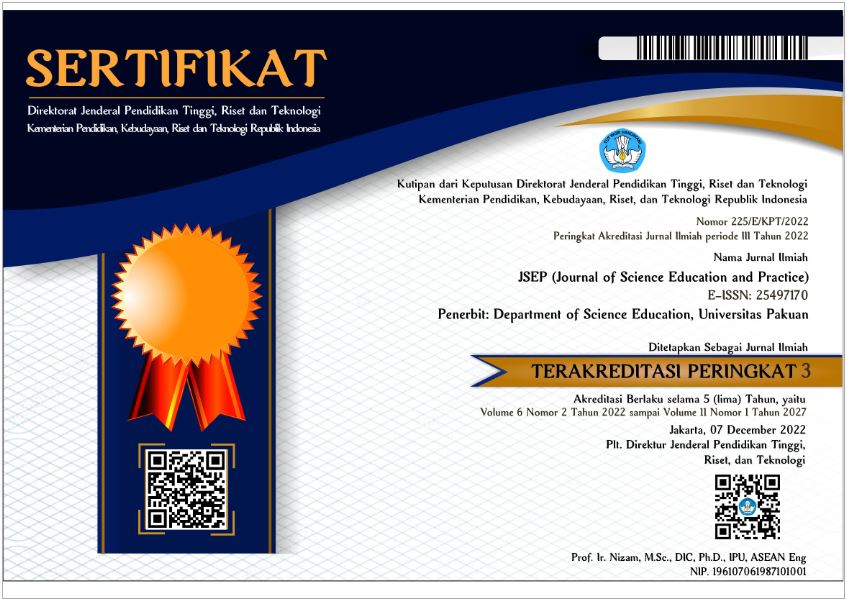ADDITIONAL MENU
IN ELEMENTARY SCHOOLS, MENTORING IS AN ATTEMPT TO CREATE A CULTURE OF QUALITY IN RESPONSE TO THE ENVIRONMENTAL CRISIS FACING CIVILIZATION
Abstract
Keywords
References
Darling-Hammond, L., Flook, L., Cook-Harvey, C., Barron, B., & Osher, D. (2020). Implications for educational practice of the science of learning and development. Applied Developmental Science, 24(2), 97-140.
Fullan, M. (2020). The devil is in the details: Systemic educational improvement. Journal of Educational Change, 21(1), 1-19.
McLeskey, J., & Billingsley, B. (2020). Leadership for inclusive education: Inclusive practices that support school improvement. Journal of Educational Administration, 58(5), 510-525.
Noddings, N. (2020). Caring and education. Routledge.
Sallis, E. (2020). Total quality management in education (3rd ed.). Routledge.
Sallis, E., & Eley, M. (2020). Total quality management in education: Performance improvement through operational excellence. Routledge.
UNESCO. (2020). Education for sustainable development goals: Learning objectives. United Nations.
Wang, C., Berry, A., & Swigger, K. (2020). The impact of school culture and climate on student achievement and teacher effectiveness: A literature review. Journal of Education and Learning, 9(2), 221-230.
Arslan, S. (2018). Quality culture in schools: A study on teachers' perceptions and organizational culture. Education Sciences, 8(3), 122.
Bartle, E., & Ishii, K. (2019). The role of teachers in building a culture of peace: Perspectives from Japanese and UK primary schools. Cambridge Journal of Education, 49(2), 211-227.
Danielson, C. (2018). The framework for teaching evaluation instrument. Educational Leadership, 75(4), 48-54.
Karwowski, M., & Grzesikowska-Kulińska, E. (2020). Strengthening school-family collaboration: A strategy to improve educational outcomes. Frontiers in Psychology, 11, 66.
Kol, S., & Schwartz-Mirman, O. (2021). The role of parental involvement in developing school climate and student well-being: A cross-cultural comparison. International Journal of Environmental Research and Public Health, 18(1), 179.
LoCasale-Crouch, J., Mashburn, A. J., Downer, J. T., & Pianta, R. C. (2018). Pre-K teacher's use of instructional and emotional support strategies in relation to children's social skills. Early Education and Development, 29(7), 901-918.
McLeskey, J., & Waldron, N. L. (2020). Including students with exceptionalities: Practical strategies for classroom teachers (4th ed.). Routledge.
Piwowar-Sulej, K., & Januszek, M. (2019). Teachers' perception of their role in shaping the ecological attitudes of primary school students. Sustainability, 11(2), 337.
Sharma, A., & Dhull, I. (2018). Importance of education in sustainable development. Journal of Educational Research and Rural Planning, 1(1), 6-13.
UNESCO. (2018). Rethinking education: Towards a global common good? UNESCO.
Yeni, Y., & Dombayci, M. A. (2020). The relationship between servant leadership and organizational culture: The mediating role of organizational trust. Heliyon, 6(12), e05725.
Yıldırım, A., & Çavuş, S. (2021). The mediating role of school culture in the relationship between servant leadership and organizational citizenship behavior. Eurasian Journal of Educational Research, 21(89), 259-278.
Agustin, M, & Syaodih. (2008).Bimbi-ngan konseling untuk anak usia dini. Jakarta: Universitas Terbuka.
Brabender, V., & Fallon, A. (2009). Group development in practice: guidance for clinicians and researchers on stages and dynamics of change. Washington, DC: American Psychological Association.
Lyznicki, J. M., Young, D. C., Riggs, J. A., Davis, R. M., & Dickinson, B. D. (2001). Obesity: Assessment and management in primary care. American Family Physician, 63(11), 2185-2196.
Hodgson, J., & Weil, J. (2011). Commentary: how individual and profession-level factors influence discussion of disability in prenatal genetic counseling. Journal of Genetic Counseling, 1-3.
Fariq, A. (2011). Perkembangan dunia konseling memasuki era grobalisasi. Pedagogi, II Nov 2011(Universitas Negeri Padang), 255-262.
DOI: 10.33751/jsep.v7i2.9253
 Abstract views : 122
Abstract views : 122
Refbacks
- There are currently no refbacks.
Copyright (c) 2024 JSEP (Journal of Science Education and Practice)

This work is licensed under a Creative Commons Attribution 4.0 International License.












